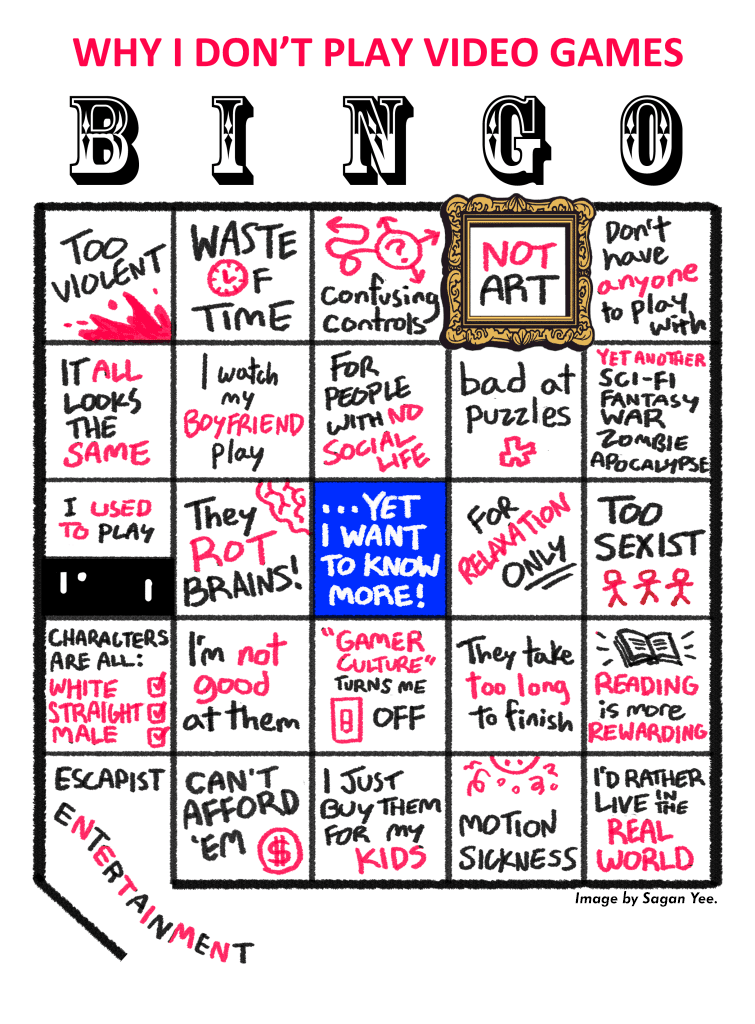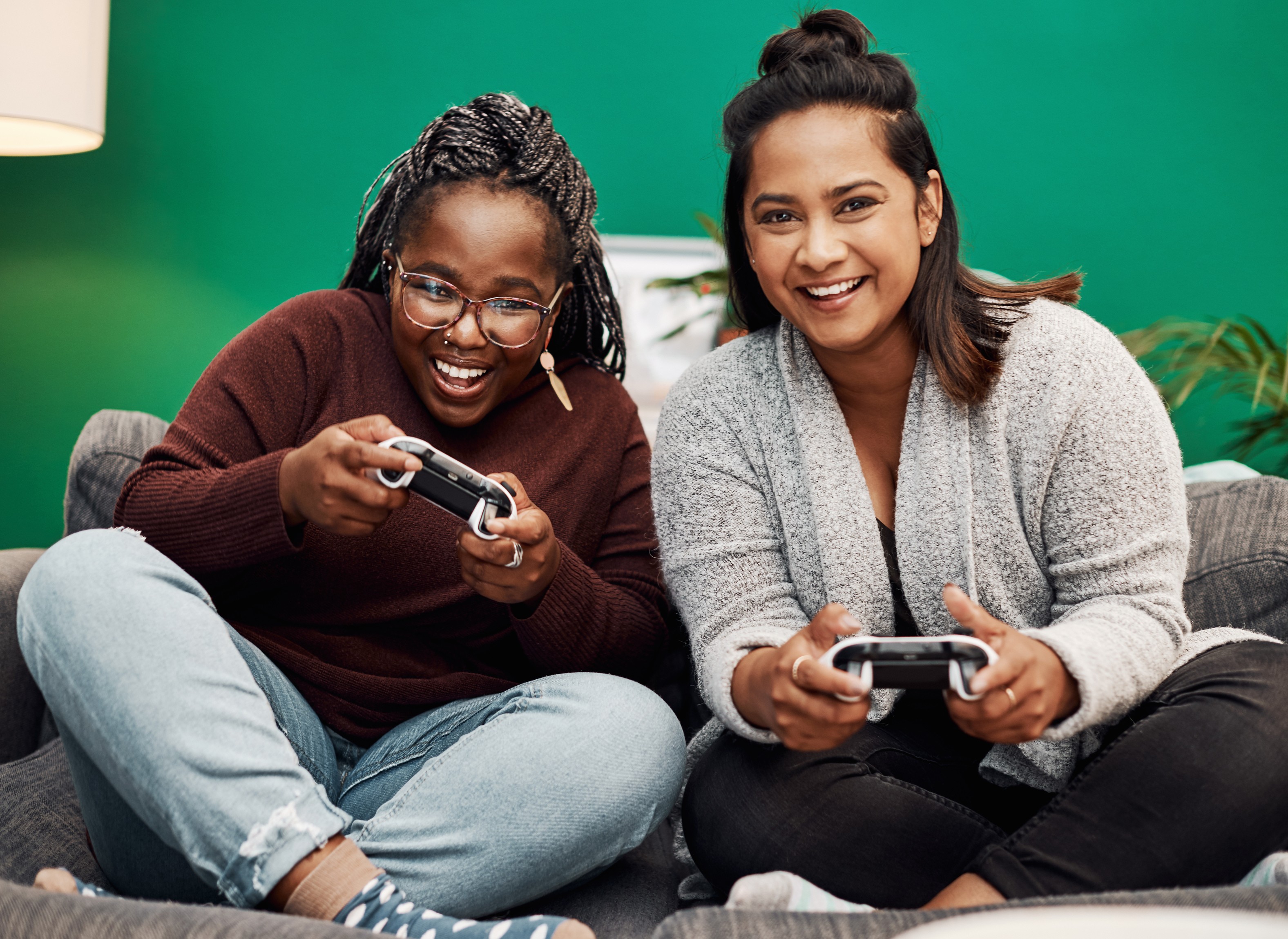
Can the virtual worlds in games provide a space for that reimagination to work towards? Can it serve a form of resistance against the constraints imposed by societal norms and offer a counter-narrative to the often restrictive realities we may face? Can games and play foster community and connection, by coming together in play - whether through dance, art or gaming - to create a shared space for joy and solidarity?
Across many facets of life, girls and women, and more specifically, African girls and women, continue to face systemic disenfranchisement due to a combination of historical, socio-economic, cultural, and political factors. Rather than diving into these barriers, hurdles and challenges, we can look at the example of an emerging technology such as artificial intelligence. Over the past few years, discourse on the harms of AI has steadily been increasing in global fora with many stellar women leading the way, however, there remains a stark reality: African girls and women often have limited control over critical aspects of technology. Considering the internet’s infrastructure, from the undersea cables to hardware and software, is predominantly developed, controlled and profited from by entities outside the continent. Additionally, the human resources required for moulding the technology of the present and future is disproportionately scarce in many African countries, with a pronounced gender bias. The existing inequalities, unbalanced power, lack of control and ultimate disenfranchisement becomes evident.
Technooptimism and IRL Worldbuilding
In today’s technological climate, it’s easy to slip into technopessimism. However, what if we try to explore building a future through different narratives? Within the challenges that prevail, there is an opportunity for digital and IRL worldbuilding through play. Games and play can push traditional boundaries to explore new possibilities of being and doing that transcends the digital to become deeply rooted in physical, cultural practices. Play allows for exploration and the challenging of existing power structures, making it a powerful tool for feminist action.
Play as Resistance
In the African context, art, dance and storytelling have always persisted as forms of expression and resistance. What possibilities do games hold to embed these cultural practices to reimagine and reshape the world around us by challenging dominant discourse that seeks to marginalise the creativity and voices of African experiences and perspectives? Worldbuilding in digital games is a powerful tool for exploration and expression where girls and women can experiment with new identities, roles, and futures. At Pollicy, an organisation focused on feminist digital and data rights, we once held an African Speculative Fiction writing contest and I found it very troubling that almost every story we received dreamed of an apocalyptic future. There was little room for building a joyful utopia within Africa.
Can the virtual worlds in games provide a space for that reimagination to work towards? Can it serve a form of resistance against the constraints imposed by societal norms and offer a counter-narrative to the often restrictive realities we may face? Can games and play foster community and connection, by coming together in play - whether through dance, art or gaming - to create a shared space for joy and solidarity?
An Inclusive Gaming Industry?
What then would it take for us to build a thriving gaming industry nationally and continent-wide that incorporates the experiences, skills and expectations of African girls and women? It is predicted that the African games industry will generate over US$1 billion for the first time in history this year. In several countries across the world, research has shown that gamers are split more or less equally among those who identify as men and those who identify as women. However, only 22% of people involved in the games industry identify as women. Achieving gender parity, not just for profit, but for a livelier industry, requires increasing representation but as well as ensuring that the content and opportunities within the industry are inclusive and diverse.
Play like a Feminist
Drawing from Shira Chess's work Play Like a Feminist, the statement "feminism needs gaming and gaming needs feminism" encapsulates the reciprocal relationship between these two domains. She posits that feminism needs gaming as an increasingly powerful medium to influence contemporary culture; to broaden the scope of feminist activism and theory, allowing for the exploration of themes such as virtual identity, online gender-based violence, and the digital economy and to provide a space for storytelling, counternarratives and empathise with diverse perspectives. On the other hand, gaming needs feminism to challenge toxic culture, bring in new ideas and innovation to help evolve the industry further. I found this interesting graphic below on her website here.

Games can be beautiful, thoughtful pieces of art. They can be something to do when we feel anxious or are bored waiting in line. They can be a page turning story set in fantastical lands, or in our backyard. They can challenge the narratives we tell ourselves and others. They can simply be fun, alone, with your partner, with your friends, at a party. As Chess aptly puts it, “we don’t play enough. And play is essential to a happy, fulfilled, gratifying life.” By embracing play, we open ourselves up to new ways of thinking and being, both within and beyond the digital realm.
Last Updated:
July 23, 2024





